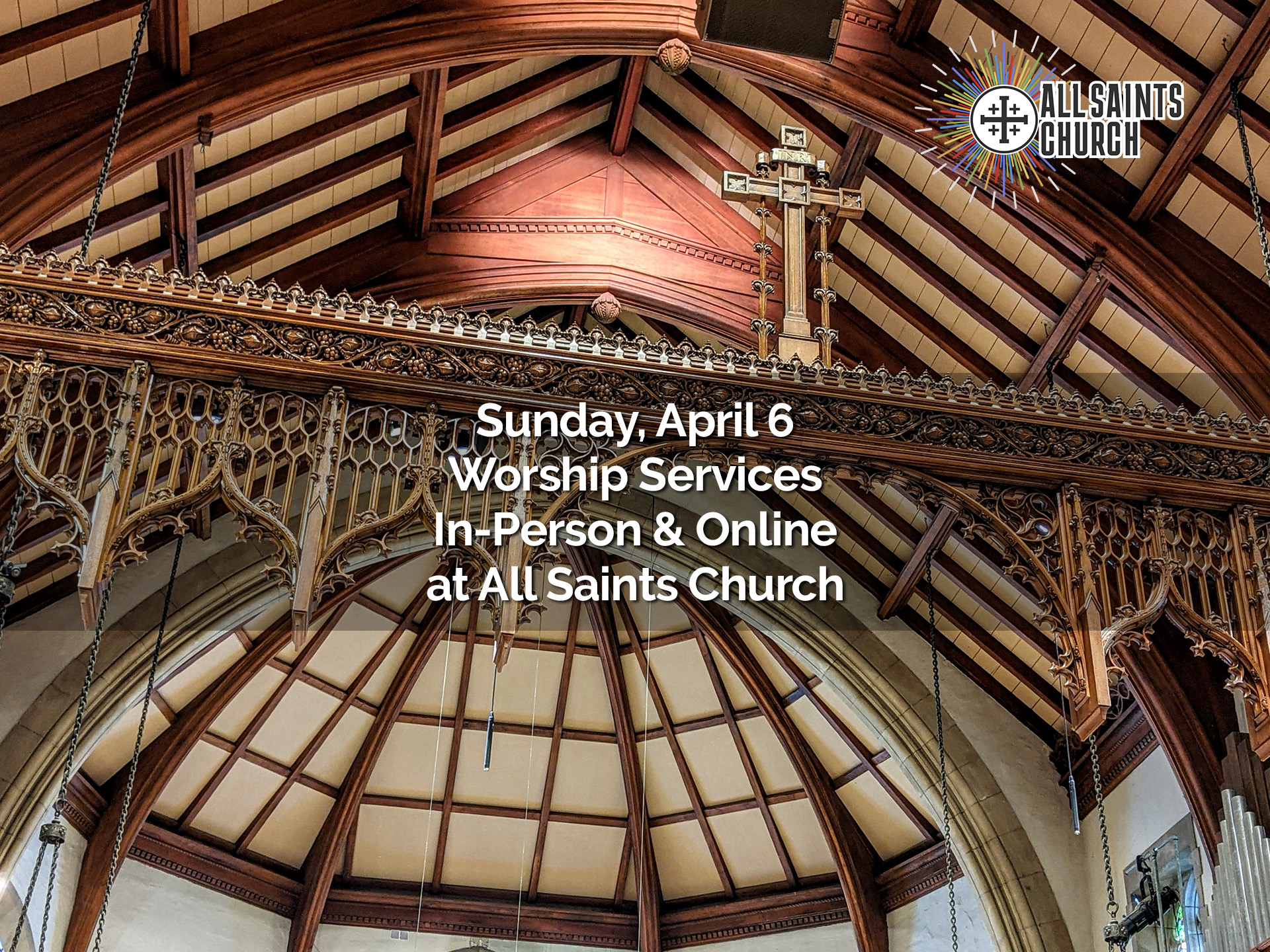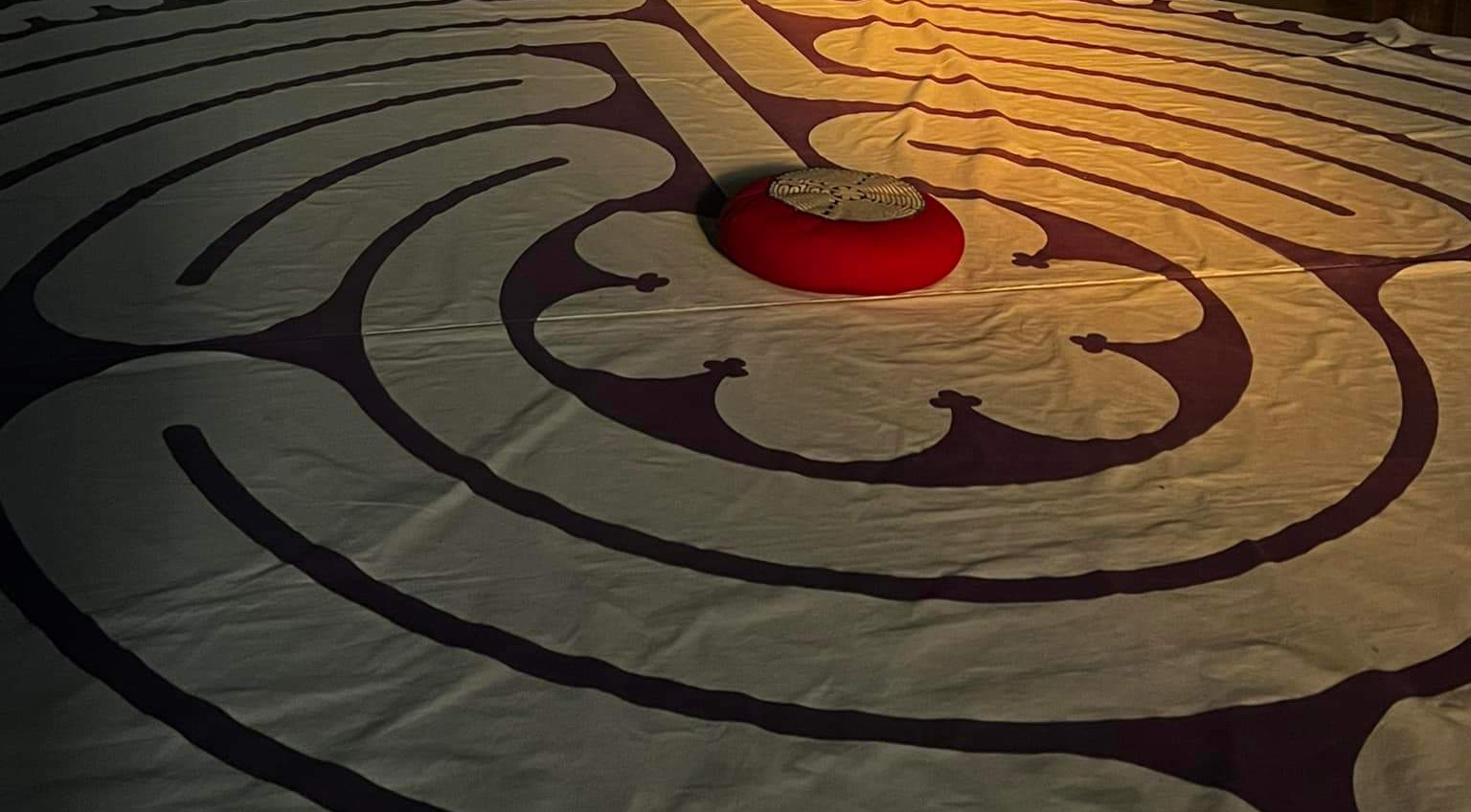The Gospel isn’t meant to be gulped down on Sunday morning, but gnawed on through the week so it really becomes a part of us. You’ve got to work at it, like a dog with a good bone! Here’s the Gospel for this coming Sunday — First Sunday After the Epiphany — with food for thought on the question: What do we need saving from? Gnaw away!
First Sunday After the Epiphany – Luke 3:15-17, 21-22
The people were full of anticipation, wondering in their hearts whether John might be the Messiah. John answered them all by saying, “I am baptizing you in water, but someone is coming who is mightier than I, whose sandals I am not fit to untie! This One will baptize you in the Holy Spirit and in fire. A winnowing-fan is in his hand to clear the threshing floor and gather the wheat into the granary, but the chaff will be burnt in unquenchable fire.”
…When all the people were baptized, Jesus also came to be baptized. And while Jesus was praying, the skies opened and the Holy Spirit descended on the Anointed One in visible form, like a dove. A voice from heaven said, “You are my Own, my Beloved. On you my favor rests.”
The Backstory – What’s Going On Here?
Much of the third Chapter of Luke we read during Advent in the strange way the lectionary jumps around the Gospel. Chapter two tells the story of Jesus’ birth, his presentation in the Temple and Jesus teaching in the Temple at age 12 (quite the condensation of Jesus’ childhood). Chapter 3 immediately dives into the story of John the Baptist preaching in the wilderness, a story which ends with the first paragraph of this reading in which John foretells the coming of Jesus and dispels rumors that he is the Messiah.
What this reading omits is verses 18-20, which are curious chronologically. Luke 3:18-20 is the account of the arrest of John the Baptist:
But Herod the tetrarch – whom John rebuked for his wickedness, including his relationship with his sister-in-law, Herodias – committed another crime by throwing John into prison.
In the other Gospel accounts, John’s arrest comes after Jesus’ baptism (which makes sense — how could John baptize Jesus if John was in prison!). But in arranging it this way (and in not mentioning John specifically in the verses about Jesus’ baptism), Luke turns this passage into a hinge. The arrest of John signifies the end of the era of God’s promise to the people of Israel. The baptism of Jesus signifies the beginning of the era of God’s fulfillment in Jesus Christ. Immediately after this passage, Luke launches into the genealogy of Jesus. But unlike Matthew, whose genealogy goes back to Abraham and David (a distinctly Jewish genealogy), Luke traces Jesus back to Adam. Remember, Luke was the “Gospel to the Gentiles” … so this genealogy from the beginning puts what God is doing in Jesus in a universal and not just a Jewish context.
A few things to chew on:
*“To untie his sandals” is a marriage custom, one that echoes the story of Boaz and Ruth (Ruth 4:7-8). That story allows Boaz to save Ruth and Naomi from starvation and desolation (it is worth noting that Obed, the son of Boaz and Ruth, is mentioned in the genealogy that immediately follows this story). John announces that he is not worthy to be the bride for the bridegroom who is Christ. The bride in this case is not one person, and – for Luke – not even just the people of Israel (the bride in much of the other imagery of the romance between God and the people), but all people everywhere who will become the church. Who is worthy to untie Jesus’ sandal? It is all of us.
*John says of Jesus “He will baptize you in the Holy Spirit and with fire.” Remember that the author of Luke is also the author of Acts, so this is a foretelling of Pentecost, where this actually happens. It’s also a reference to God coming like a “refiner’s fire” in Malachi 3:2. For John, the baptism of Christ is something that fundamentally changes who we are … that burns away our old lives and sets us on a new path that is full of passion and energy. It was a true “conversion experience.” Can you think of such an experience in your life — something that happened to you that changed you and set you off on a new path? How long has it been since you felt that way? Have you stayed on that path?
Try This:
Our baptism is literally a turning from an old life and a taking on of a new one. One of the most ancient parts of the baptismal service makes this explicit and that is the renunciations and adhesions — six questions where the candidates renounce their old lives and commit to a new life in Christ.
One of the questions in the “adhesions” section asks of us: “Do you put your whole trust in his (Christ’s) grace and love?” That’s an amazing thing to ask and an even more amazing thing to say “I do” to.
This week, take five minutes at the beginning of each day — find somewhere quiet, and sit with this question: Do you put your whole trust in Christ’s grace and love? What does that mean? What might a small sign of that be in your life that day. Where does that make you exhilarated? Where does that make you terrified? How else does it make you feel?
Saved?
“The people were full of anticipation, wondering in their hearts whether John might be the Messiah.”
There’s a subtext to this Gospel story where John makes it clear he’s not the Messiah and points to Jesus as being the Messiah, and the subtext is this:
The people all know they need a Messiah.
The people who have come out to see John are “full of anticipation.” They don’t just want a Messiah, they know they need a Messiah. know they need saving. They know it desperately. They are filled with expectation as if their lives depend on it … because that’s exactly what they believe.
The people who came out to see John were living in what we would consider grinding poverty. They were living under an oppressive occupying regime. When they thought of Messiah, they didn’t have to stop and think long about what they wanted to be saved from?
They needed saving. They needed saving badly. And they knew it.
For many of us, it’s not so clear. For many of us, our lives are comfortable, comfortable enough that we easily confuse our wants and our needs. The biggest challenge of our wealth and privilege is it convinces us so easily that we don’t need God.
After all … what do we need saving from?
Ironically — and providentially — the answer for us and those people in the wilderness is exactly the same. That’s because Jesus wasn’t the Messiah they were looking for … and he’s not the Messiah we’re looking for. Jesus didn’t come to them or come to us to save from our physical circumstances — be it refugee squalor or palace ballroom.
Jesus came to save us from ourselves and Jesus came to save us to ourselves.
Jesus came to save us from the life the world tells us we need to live. A life of self-focus and fear. A life where we not only confuse wants and needs but are convinced that we have to provide all of them. Jesus came to save us from a life of caring about ourselves and always being afraid that the things that are most dear to us will be taken away.
But Jesus also came to save us to ourselves — our true selves. Jesus came to save us to fearless lives given away in love of God and the world. Jesus came to save us to the knowledge that the only thing that really matters, the only thing that is a true need — God’s love for us, God’s voice saying to each of us, “You are Beloved, with you I am well pleased.” — is the one thing that can never be taken away.
I wonder if the whole language around “saved” hasn’t become more obstacle than help for us. Maybe the question for us isn’t “do you need to be saved?” but
“Do you want to be fearless?”
“Do you want to believe you are deeply loved?”
“Do you want to come fully alive?”
What if there was someone who could do all those things for you? Would you go out in the wilderness to find them? What if someone told you that it would be like a refiner’s fire … would you still be up for it?
We follow Jesus because Jesus offers us a life without fear, a life of deep love, a life that is full to overflowing. It doesn’t come without a cost … but the payoff is beyond belief.
Are you in?
. . . . . . . . . . . . . . . . . . . . . .
Check out the rest of Sunday’s readings
The Lectionary Page has all of the readings for this Sunday and every
Sunday – click here for this Sunday’s readings.
Collect for Sunday
Pray this throughout the week as you gnaw on this Gospel.
Holy God, who at the baptism of Jesus in the River Jordan proclaimed him your beloved and anointed him with the Holy Spirit: Grant that all who are baptized into his Name may keep the covenant they have made, and boldly confess him as Lord and Savior; who with you and the
Holy Spirit lives and reigns, one God, in glory everlasting. Amen.
Want to read more?
“The Text This Week” is an excellent online resource for anyone who
wants to dive more deeply into the scriptures for the week.
. . . . . . . . . . . . . . . . . . . . .



